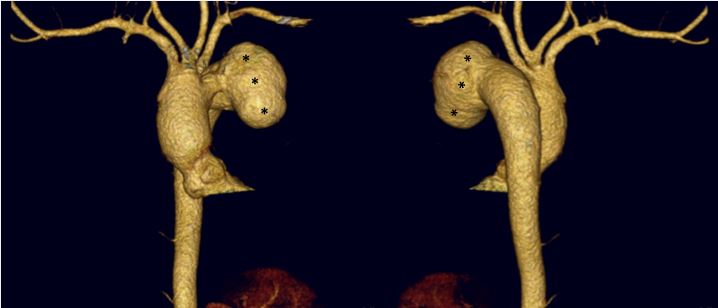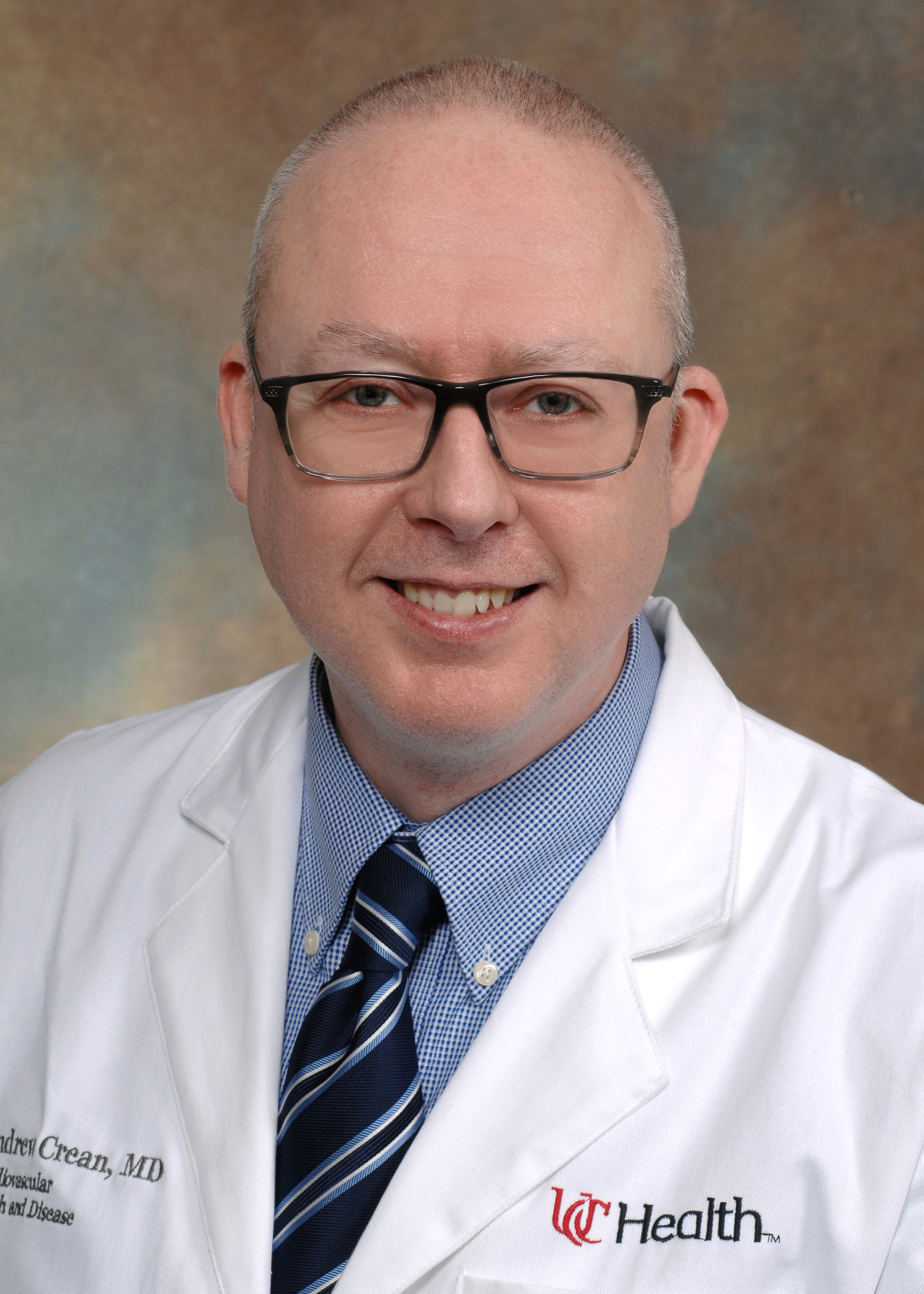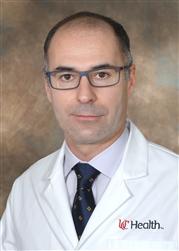Multi-Specialty Team Approach Most Effective for Adults with Congenital Heart Disease
University of Cincinnati (UC) Medical Center has developed a collaborative program for treating adults with congenital heart disease (ACHD), integrating highly skilled and experienced adult academic health system physicians and clinicians at UC Health with peers from Cincinnati Children’s Hospital Medical Center (CCHMC).

Anterior and posterior views of the thoracic aorta (acquired by cardiac CT angiography) reveal a large saccular pseudoaneurysm (asterisks) arising at the site of previous surgery to relieve coarctation of the aorta in childhood. Screening for complications occurring in adult life with no warning until likely fatal rupture, and timely surgery, saved this 51-year-old man’s life.
Due to breakthroughs in surgical treatments, most children with complex CHD now reach adulthood, but often require procedures such as valve surgeries, catheter interventions or other high-risk cardiac procedures including Fontan conversion. Adult patients may present with a myriad of late cardiac and general medical problems as a result of complications from their original childhood heart condition, failure of the reparative surgery, comorbid conditions impacting cardiac care, or aging of their cardiovascular circulation. This population presents unique challenges to physicians and cardiologists, says Alexandru Costea, MD, FHRS, professor of medicine, and director, Center for Electrophysiology, Rhythm Disorders and Electro-Mechanical Interventions, at UC Heart, Lung and Vascular Institute, Atrial Fibrillation Center. Dr. Costea and Andrew Crean, MD, MRCP, FRCR, Sanghvi Endowed Chair in Cardiovascular Imaging at UC Medical Center, help coordinate care for complex ACHD patients—many of whom are severely and chronically ill.
The UC Medical Center team affirms the ACHD medical care guidelines established in 2008,1 and developed in a complementary scientific statement published by the American Heart Association in 2015.2 The statement pointed out, “ACHD patients with heart failure, arrhythmia, acquired heart disease and other acute morbidities are likely to present locally to hospitals that may not have established ACHD programs. Coordination of care between such facilities and ACHD regional programs is important.”2 According to Dr. Crean, “There are now many more adults than children with congenital heart disease, and sadly many of them do not have access to expert, coordinated care. Their cardiac conditions can be complex thus making subspecialty coordination more important than ever.”
As part of the integrated team, Dr. Costea and Dr. Crean provide care to adults still being seen by a congenitally-trained cardiologist. “UC electrophysiologists perform specialized EP procedures in congenital heart disease adults treated at CCHMC; we offer management for complex arrhythmias specific to the congenital abnormalities in adult patients. Additionally, many of these patients develop arrhythmias encountered with aging in the general population: atrial fibrillation, ventricular tachycardia and advanced congestive heart failure – we are addressing those as well, using the highest level of expertise,” Dr. Costea says. In the care of single ventricle patients with a Fontan circulation, CCHMC’s ACHD team formed an association with UC Medical Center’s liver specialists. “In patients with a Fontan circuit, systemic venous return flows to the lungs passively without the benefit of a pulsatile circulation – this leads to high central venous pressures which predisposes to liver congestion and fibrosis,” says Dr. Crean. The team also meets regularly to review patients with pulmonary hypertension, which may be a complication of an unrepaired hole in the heart or systemic ventricular dysfunction.
“A multi-modality team approach is absolutely essential,” Dr. Crean says. The team at UC Medical Center includes: adult cardiologists with training in ACHD; electrophysiologists who have performed procedures common among ACHD patients; interventional cardiologists familiar with percutaneous routes and dilations; nurse coordinators who are knowledgeable about treating chronically ill patients; and social and support services professionals who can offer assistance to patients and families for post-hospital care. This program allows for collaboration with subspecialists in the areas of high-risk obstetrics, pulmonary hypertension, aortic disease, advanced heart failure and UC Medical Center’s heart transplantation and mechanical assist device program—the region’s first and most experienced adult heart transplant program.
Through the work conducted at UC Medical Center, patients have access to the newest innovations and clinical trials, and referring physicians work in partnership with the clinical team to deliver excellence in patient satisfaction and coordination of care.
References:
1. Warnes CA, Williams RG, Bashore TM, et al. ACC/AHA 2008 guidelines for the management of adults with congenital heart disease: a report of the American College of Cardiology/American Heart Association Task Force on Practice Guidelines (Writing Committee to develop guidelines on the management of adults with congenital heart disease). Circulation. 2008;118:e714–e833.
2. Bhatt AB, Foster E, Kuehl K, et al., on behalf of the American Heart Association Council on Clinical Cardiology. Congenital heart disease in the older adult: a scientific statement from the American Heart Association. Circulation. 2015;131:1884-1931.
 Andrew Crean, MD, MRCP, FRCR
Andrew Crean, MD, MRCP, FRCR
Professor of Medicine
Sanghvi Endowed Chair in Cardiovascular Imaging
Email: creanam@ucmail.uc.edu
 Alexandru Costea, MD, FHRS
Alexandru Costea, MD, FHRS
Professor of Medicine
Director, Center for Electrophysiology, Rhythm Disorders and Electro-Mechanical Interventions
University of Cincinnati Heart, Lung and Vascular Institute Atrial Fibrillation Center
Phone: (513) 584-0297
Email: costeaai@ucmail.uc.edu
Connect with Dr. Costea on Doximity
Leave a reply →

